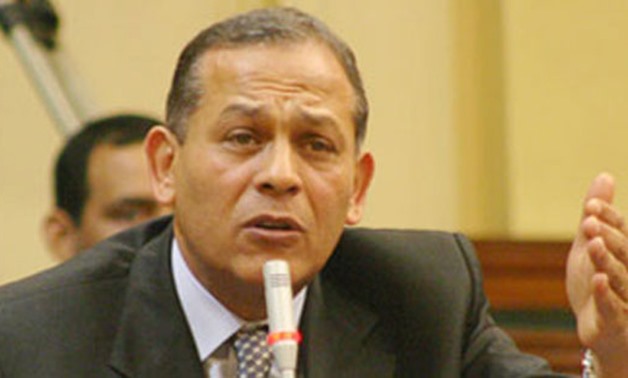
FILE: Anwar Essmat Sadat
CAIRO – 15 January 2018: The nephew of assassinated Egyptian president Anwar Esmat al-Sadat reversed Monday his previous decision to run in the upcoming presidential election set to begin March 26, 2018.
In a press conference, Mohamed Anwar el-Sadat, Head of Reform and Development Party, declared his decision came after an evaluation of the current electoral climate and in accordance with his campaign’s views.
El-Sadat expressed the importance of voting, calling on all citizens to vote in the upcoming election.
Although Egypt is still five days away for the opening of the candidacy door, bids for presidency were made by a number of political figures; some celebrities also revealed their intention to run in the elections.
All presidential candidates must meet the requirements set by the National Electoral Commission (NEC). The list includes: being an Egyptian national born to Egyptian parents, not younger than 40 years old and not suffering from physical or mental illness, among other conditions.
Veteran lawyer and Human rights activist Khaled Ali, who ran for president in 2012, revealed in a press statement last week that he will be running for president.
On Saturday, Parliamentarian Mortada Mansour announced he is running for president as well, announcing that his first decision to take as president would be to block Facebook.
Ex-military Chief of Staff Sami Anan’s candidacy for president was revealed on Friday. However, his son denied knowing anything about his father’s decision. Hence, it is not clear at this point in time whether General Sami Anan will run in the presidential election.
Belly dancer Sama el-Masry casually announced Sunday her intentions to run for president on her official Instagram account. In 2015, She was disqualified as a candidate for parliamentarian elections over her “immoral” video clips, where she is video recorded dancing.
Another backtrack was made by the former Egyptian Prime Minister Ahmed Shafik last week, when he reversed his previous decision to run for president, acknowledging that he is not the “ideal person” to lead the nation at this point in Egypt’s political and economic junction.
To be accepted as a candidate in the presidency election, one must be
recommended by at least 20 elected parliamentarians or be endorsed by at least 25,000 citizens who have the right to vote, in at least 15 governorates, with a minimum of 1,000 supporters from each governorate.
Current President Abdel Fatah al-Sisi has not as of yet spoken about his intentions to run for presidency. However, over 23,924 endorsement forms have been collected in support of him running for a second four-year term. The majority of MPs reportedly announced their support for Sisi, including Parliament Speaker Ali Abdel Aal.
The final list of the candidates will be announced on February 24; the deadline for any candidate to retreat will be on March 1. The primary results of the first round of the election will be announced on March 29, when decisions on appeals submitted by candidates, if any, will be made.
If no candidate obtains the majority of votes, a three-day run-off round will commence in Egypt on April 24, and on April 19 abroad. The name of the winning candidate is set to be announced on May 1.

Comments
Leave a Comment